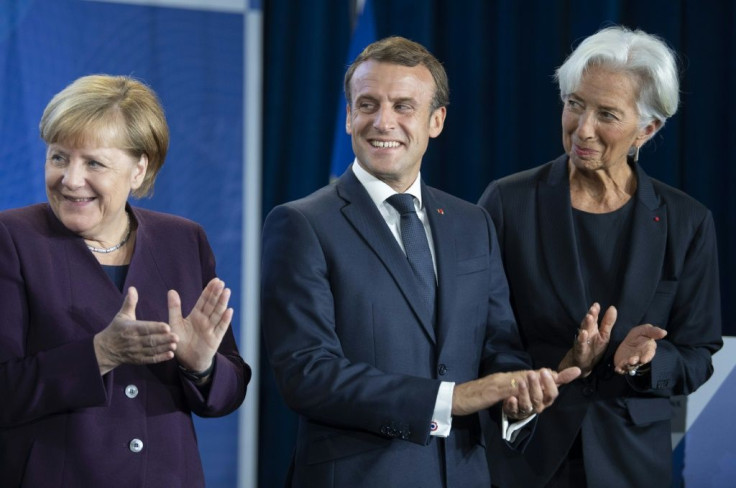Germany Resists Fresh Calls To Boost Govt Spending

Germany resisted fresh pressure Wednesday to boost European growth through increased public spending after incoming European Central Bank chief Christine Lagarde urged countries with budget surpluses to open their purse strings.
"This is no situation for special interventions," Finance Minister Olaf Scholz said, just hours after Lagarde told France's RTL radio that such well-off eurozone nations should do more.
Successful coordination saved the bloc in the 2008-09 sovereign debt crisis but "since then the countries which have budgetary space have not really made the necessary efforts," she said.
She argued that "countries with chronic budget surpluses like the Netherlands and Germany", need to increase spending to redress "imbalances" in the bloc, investing more in infrastructure, education and innovation so as to give the overall economy a boost.
The comments suggest Lagarde may take a more assertive stance at the ECB whose massive stimulus programme and record low interest rates have proved less and less effective.
For months, monetary policymakers led by Lagarde's predecessor Mario Draghi have pressed well-off eurozone nations to use their tax and spending powers to boost growth.
On Wednesday, US Treasury Secretary Steven Mnuchin added to the calls, saying that on "Europe I am somewhat concerned... they need to do more on the fiscal side".
'Record investment'
But Berlin, ever mindful of keeping the public finances in balance, is disinclined to bend to the outside pressure and insists in any case that it is already acting.
German spending "is on an expansionary path, state investment is at record levels," Scholz said. "No federal government has ever invested more."
Under Scholz, a member of the centre-left Social Democrats, and his conservative predecessor Wolfgang Schaeuble, Europe's biggest economy has consistently posted budget surpluses over the past five years.
Even as growth slows, Chancellor Angela Merkel's government has stuck to its strict "black zero" policy that allows no new debt.
But with forecasts pointing to the country entering a technical recession in the third quarter, Berlin faces increasing calls to spend more on investments or approve tax cuts to pre-empt a deeper slump.
For now, "we don't have a crisis" that would justify still more spending, although "we would have all our options" worth "many, many billions of euros, like last time" if one did break out, Scholz said.
Germany's large budget and trade surpluses have for years been a bone of contention between Berlin and Paris, with France regularly calling on Germany to invest more of its spare cash.
"What's the point of having public accounts perfectly in order... if your European neighbours can't benefit from your growth and economic dynamism?," French Finance Minister Bruno Le Maire argued last month.
The International Monetary Fund (IMF) under Lagarde regularly prodded Germany to reduce its budget surplus to boost growth and wages.
Eurozone budget
Lagarde, also a former French finance minister, pressed the case for greater solidarity among the 19 countries that share the euro.
"We share a currency but we're not sharing much in terms of budgetary policy at the moment," she said, adding that it was "regrettable" that the eurozone area did not yet have its own budget.
Getting eurozone members to agree on a shared budget has been one of French President Emmanuel Macron's biggest European battles.
After his election in 2017 Macron unveiled proposals for ambitious EU reforms, including a eurozone budget of several hundred billion euros.
Eurozone finance ministers earlier this month eventually agreed on the basic terms of a tiny budget that fell far short of his aims.
Inspired by the bailout programmes for Greece, Portugal and Ireland, the 17-billion-euro tool only helps governments that deliver politically difficult reforms, such as loosening hiring and firing rules, slashing pensions or privatising state companies.
It has also yet to be approved by eurozone leaders.
burs-tgb/dlc/bmm
© Copyright AFP 2024. All rights reserved.





















